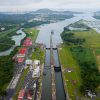The United States and France have urged for a 21-day temporary ceasefire between Israel and Hezbollah, amidst a devastating three-day bombing campaign that has claimed over 600 lives and heightened fears of a regional conflict.
The call for a ceasefire, supported by nations including Australia, Canada, and Japan, aims to facilitate broader negotiations in a region already grappling with humanitarian crises.
UN Secretary-General António Guterres described the situation in Lebanon as “hell breaking loose,” emphasizing the urgent need for peace.
In light of escalating violence, Israel is reportedly preparing for a possible ground operation, further intensifying the humanitarian crisis.

As concerns rise about the safety of citizens, the Australian government announced that its defense forces might assist in evacuation operations. However, they acknowledged the limitations in providing support for the estimated 15,000 Australians still in Lebanon.
This crisis adds to the existing environmental challenges faced by the region, including the potential degradation of ecosystems and the impact of military actions on air quality and water resources.
The international community is reminded that prolonged conflicts not only disrupt human lives but also threaten the fragile environmental balance in the Middle East.
As diplomatic efforts intensify, the hope remains that a ceasefire can lead to negotiations that prioritize not just peace but also the well-being of the affected populations and their environment.
The coming hours will be critical as responses from both Israel and Lebanon are anticipated, potentially setting the stage for a much-needed resolution.

